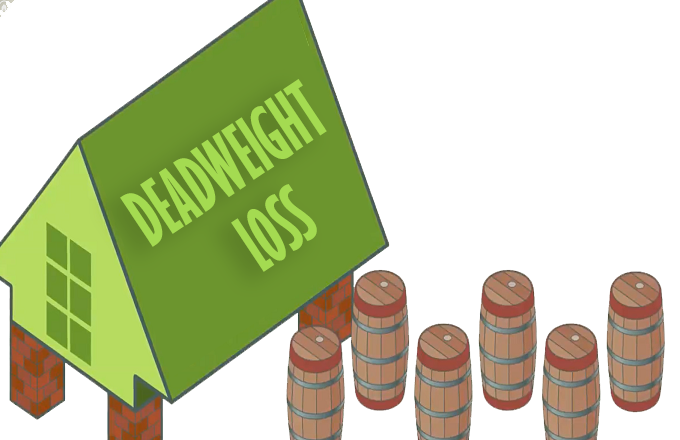Page Contents Table
Before starting off our topic and diving into the arena of obtaining the answers about a tax on a good has a deadweight loss if we are given few choices. Let’s find out the real meaning of tax first. We often face difficulties in realizing the real definition of taxes and the strategies to save the tax. In the academic curriculum or in the industry, tax is defined in multiple ways.
What actually a Tax is?
In literal and simple way, Tax is a predefined amount an individual, a community or a company has to pay to the government. Paying tax is the compulsory duty mandatory for the citizens to fulfill. Government collects taxes so that it could be able to fulfill the expenditures of the people. Tax has three major divisions besides several other minor categories.
- Wealth Tax
- Income Tax
- Professional Tax
All three play vital role in taxation of the government. The summation of all three is the total tax. You might see collective taxation differs in several countries some have higher taxes and some comes up with low taxes. This heavily depends upon how the economy is doing.
Now coming back to our topic, few fundamental tax related terminologies I would like to mention to the beginners who do not have enough knowledge about basic taxation.
Basic Terms
Commodity: Any tangible or more specifically an agricultural based asset/product or raw material that could be bought or sold is defined as Commodity.
Consumer Surplus: It is defined as the difference between the amount that the customer has intentions to pay and the actual amount.
Equilibrium Level: Equilibrium level occurs when an economy of business or country has the same amount in the production and market. As far as the demand is concerned, it is also the same.
Producer Surplus: Producer surplus comes from the domain of production. It is difference between the amount a seller has paid and the production cost.
Let’s have a look to our original topic. We are going to discuss if the tax is imposed on goods and eventually it gets the dead weight loss, what will be the consequences of it? how we could find it? and quick overview of deadweight loss calculation.
A Tax on a good has a dead weight loss if..

We could deduce the deadweight loss by checking the consumer and producer surplus. If we witness the reduction in both surpluses and this reduction is somehow becomes greater than the total tax revenue then we have a fair chance to face the dead weight loss. This happens because when the prices of commodities are hiking, both the changes in consumer surplus and producer surplus fluctuate to reduction. Let’s understand it through example
- If I wanted to buy a Nutella gem which has tax on it. What will happen?
- I will have to pay much higher price than without tax. (Because I am paying the actual amount with tax)
- The Nutella producer will receive much lesser amount than it used to receive before tax imposition. (The coming amount from customer will have omission due to the tax recovered by the government)
What happens to consumer and producer surplus when the sale of a good is taxed
When this scenario happens, we will observe the reduction in both sectors. The buyers and sellers both are seen in reduction. Besides this, The consumer and producer surplus sectors are also affected by this. And eventually we witness the revenue uplift by the government.
Calculating Dead weight Loss
To calculate dead weight, we need to analyse the equilibrium level. The formula of Dead weight loss is
DW LOSS = 1 / 2 x (P2 – P1) x (Q0 – Q1)
- Q0 and Q1 (before the tax imposition)
- P2 and P1 (after the tax imposition)
Concluding Remarks
So at last, what we have inferred that a tax on a good has a deadweight loss if the consumer as well as the producer surpluses go into the reduction area. We could mend it by keeping the taxes low on commodities and increase where it is necessary. In this case, both the welfare buyers and sellers could fulfill theirs and economy needs.

